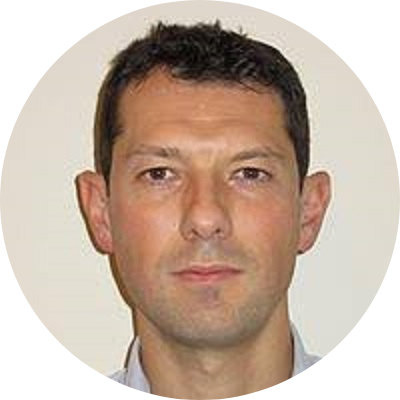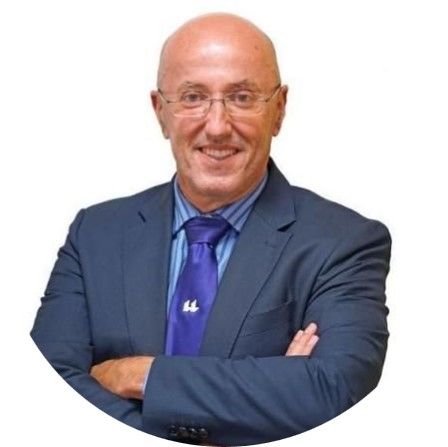Full Program
The I3M 2023 conference will be held as an Hybrid Conference. All the I3M Sessions will be both in presence and online through Microsoft TEAMS. Within the Program you will find a link to each I3M Session
Final Program
The I3M 2024 conference will be held as an Hybrid Conference. All the I3M Sessions will be both in presence and online through Microsoft TEAMS. Within the Program you will find a link to each I3M Session
I3M 2023 as hybrid event
The I3M 2023 Organization Committee has hardly worked along the last months to set-up I3M 2023 as hybrid event (both in presence and online).
Instructions for authors participating in presence
Those authors that will participate in presence will have the possibility to present their papers according to the usual mode (presentation and questions). Authors participating in presence must complete their own registration before August 31st 2023; after this date registrations for participation in presence will be not allowed.
Instruction for online participants
Those authors that will participate online will be able to access the sessions from the links provided in the program. The online participants are required to complete their registrations before September 10th, 2023. The online participants are required to pre-record a video of the paper presentation (maximum 10 minutes, please be sure to respect this limit when preparing your video!). After the video presentation, there will be 5 minutes during which the presenting author will answer questions made by the audience. The videos of the paper presentations must be uploaded by authors no later than September 10th 2023. Please use the following form to upload your video: https://www.msc-les.org/conf/I3MUpload/index.html
Keynote Talks
Keynotes are here! Take a look at the exciting lineup for I3M 2024. Keynotes present diverse, visionary speakers who deliver the most powerful new ideas in the ever-evolving world of Multidisciplinary Modeling & Simulation.

Maria Pia Fanti
Full Professor
Department of Electrical and Information Engineering, Polytechnic University of Bari
Italy
Machine learning and deep reinforcement learning applied in different fields: the role of simulation
Biographical Sketch

Eleonora Bottani
Full Professor
University of Parma
Italy
Invited speech: “Building effective simulation research papers - a scientometrics perspective of discrete event simulation studies in logistics”
When writing and publishing a research paper, the general goal is to demonstrate adequate knowledge of a problem, contribute to the scientific literature on a topic, to be recognized as an expert in the field, attract citations, and ultimately advance in the academic career. These behaviours, together with the mechanisms behind the research, have attracted the interest of the scientific community and led to the development of a relatively new discipline called scientometrics, i.e., literally, a field of study concerning measuring and analyzing scholarly literature.
Simulation studies, obviously, are not an exception to this trend; on the contrary, these aspects are particularly important as the research field is quite mature and the scientific community is wide. This speech takes the example of discrete-event simulation (DES) studies applied to logistics and, using scientometrics techniques, tries to shed light on the following points: 1) how rigorous is the usage of this technique in literature? 2) Is there any relationship between the rigour of the simulation model and the scientific impact of a paper in terms of citations received or outlet chosen for the publication? 3) is there any relationship between the way the paper is presented (i.e., its metadata) and the scientific impact of the paper?
To answer these questions, a sample of 164 studies using discrete-event simulation in logistics and published from 2009 to 2020 has been examined and reviewed for completeness as regards the methodological approach followed. Then, studies are classified in terms of scientific relevance, using scientometric techniques for evaluating the author, paper, and journal impact. The proposed classification models go beyond the more traditional analysis of journals and authors based on the number of publications and citations, and as such, it offers interesting insights for authors when preparing a simulation-based study for publications.
Biographical Sketch
Prof. Eleonora BOTTANI is Full professor of Industrial Logistics at the Department of Engineering and Architecture of the University of Parma since November 2019. She held the classical high school diploma in 1997 (mark: 60/60). She graduated in Industrial Engineering and Management in 2002 at the University of Parma (mark: 110/110 cum laude) and got her Ph.D. in Industrial Engineering in 2006 at the same university, where she also acted as a lecturer (2005-2014) and associate professor (2014-2019). Currently, she is the coordinator of the Master’s degree course in Engineering management, the Delegate of the Department Head for Quality of Teaching and Research, the Director of the Future Technology Lab research center, and the Rector’s delegate for University Rankings.
Her research activities mainly concern logistics and supply chain management; secondary topics encompass safety of industrial plant and sustainability. She is the author (or co-author) of more than 200 scientific papers, with 189 of them indexed on Scopus (citations>3200; H-index=29); she is referee for more than 60 international journals, editorial board member of five scientific journals, Associate Editor for one of those journals, and editor-in-chief of a scientific journal.

Giuseppe Vignali
Associate Professor
University of Parma
Italy
Simulation and modeling in the food industry: Past, Present and Future research
Biographical Sketch

Shaun West
Full Professor
Lucerne University of Applied Sciences and Arts
Switzerland
SimCity for the Real World: Harnessing Model Trains, Simulations, and Digital Twins for Dynamic Decision-Making
Biographical Sketch
Currently, Shaun is a Professor of Product-Service System Innovation at the Lucerne University of Applied Sciences and Arts. His research focuses on helping industrial firms create and implement new services and service-friendly business models. He also serves on the advisory board for the ASAP Service Management Forum and is a member of the Swiss Alliance of Data-Intensive Services. Shaun lives near Zurich with his wife and two children. In his free time, he enjoys climbing, skiing, and running.

Juan Albino Méndez Pérez
Full Professor
University of La Laguna
Spain
Modelling and management of Energy Communities
Biographical Sketch
Regular & Invited Sessions
Regular sessions cover the topics of the conference and mainly group the papers that fall within a specific research subject and submitted to the regular program.
Invited Sessions consist of papers collected within the scope of an Open Track proposed by one or more organizers. Papers are mainly based on personal invitation by the Open Track organizer(s) but may also include papers submitted to the regular program.
Regular and Invited Sessions will last about 1 hour and 30 minutes and may include between 4 and 5 papers. Contributions can be either regular papers or short papers (min 3 pages length) and they will appear in the conference proceedings.
Reviewing Process
Each paper submitted to the conference will be individually peer-reviewed taking into consideration scientific quality, originality and relevance. At the discretion of the IPC and considering the reviewers’ comments, individual papers may be accepted for inclusion in the conference proceedings. The revised paper will then undergo a second round of reviews to check whether the authors have carefully addressed the reviewers’ comments and the paper is fully acceptable for publication. At the discretion of the program committee, individual papers may be removed from an invited session and placed in the regular program, as well as appropriate contributed papers may be moved to an invited session.
Presentation Formats and Speakers' Instructions
- Each session lasts 1.5 hours, and may includes from 4 to 5 papers. Depending on the number of the papers in the session, you’ll have about 12-15 minutes for your presentation, plus some time at the end for the Q&A. The chair/co-chair of your session is responsible for keeping the time, but we recommend you to adhere with the allotted time.
- We recommend you to be in your session’s room at least 10 minutes before the scheduled starting time, in order to upload your presentation on the laptop. As a general rule, speakers will not be allowed to use their own laptops, tablets or other devices to give their presentations, unless previously communicated to the conference organization team.
- When you enter the session room, introduce yourself to the chair/co-chair, so they can take note of your presence.
- Provide your presentation in either PowerPoint or PDF format. We suggest you to always bring a PDF copy of your presentation in order to minimize any format issue.
Special Sessions
Special sessions offer a 90-minute venue for the presentation of topics of special academic, social or industrial interest, such as emerging research areas or most recent trends. A Special Session can be also devised to include project presentations, panel discussions or non-technical talks on topics such as research funding, entrepreneurship, or technology transfer, and can receive a wide interest across different themes of the conference. As such, special sessions do not include presentation of scientific papers submitted to the conference and the session agenda will be defined by the Special Session Chair. All scheduling of special sessions is completed by the conference organisation committee. Requests may be submitted to the committee for a special accommodation but cannot be guaranteed, as the committee decisions are made with the full scope of the conference in mind.
List of I3M 2022 Special Sessions
Chair: David del Rio Vilas
Affiliation: OHLA-Services Ingesan (Spain)
Track Description: During the last seven years, the Horizon 2020 -the biggest EU Research and Innovation programme- has provided a wide and ambitious collaborative transnational framework for the development of solutions tackling with the main EU’s societal, environmental, economic and technological challenges. Through its different programmes and projects, Modelling&Simulation has successfully demonstrated its usefulness and versatility as a fundamental means to provide organisations with the capacity to design, analyse and adapt their response to an increasing uncertain environment. The new Horizon Europe (HE) framework, the most ambitious R&I program in the world, will extend and consolidate the achievements of the former H2020, but it will also have to deal with new realities deriving from the pandemic and the climate change scenarios. In this context of urgency and effectiveness, more than ever, academia and industry must collaborate and develop more efficient ways to exploit simulation as a central means to reach sustainable benefits for the social, environmental, and economy challenges ahead. “Supporting Academia-Industry cooperation for the acceleration of Simulation Projects” will provide both academia and industry representatives to the MAS 2021 Conference with an occasion to present themselves and have early discussions on the formation of consortia in different topics, anticipating needs and opportunities to promote initiatives focused on promoting the effective and productive simulation dialogue between the two realms.
Chairs and Speakers
Special session chairs or speakers are not required to submit a paper. The special session chair is the individual who submits the proposal to the conference committee, acts as the leader and coordinator for the session development, defines the agenda of the session, is in charge of promoting the session and ensures the successful and timely execution of the session.
Presentation Formats and Speakers' Instructions
- Each session lasts 1.5 hours in total. Please ask the chair/co-chair of your special session for preliminary information about the session agenda and the time at your disposal for the presentation.
- We recommend the speakers to be in the session’s room at least 10 minutes before the scheduled starting time, in order to upload the presentation on the conference laptop. As a general rule, speakers will not be allowed to use their own laptops, tablets or other devices to give their presentations, unless previously communicated to the conference organisation team.
- If you are a speaker, when you enter the session room, introduce yourself to the chair/co-chair, so they can take note of your presence.
- Provide your presentation in either PowerPoint or PDF format. We suggest you to always bring a PDF copy of your presentation in order to minimize any format issue.
Submit a Special Session Proposal
Are you willing to organize a special session at I3M focusing on a specific subject? Fill the form and send it to f.longo@unical.it and massei@itim.unige.it.
Organized by

For further info, please contact
